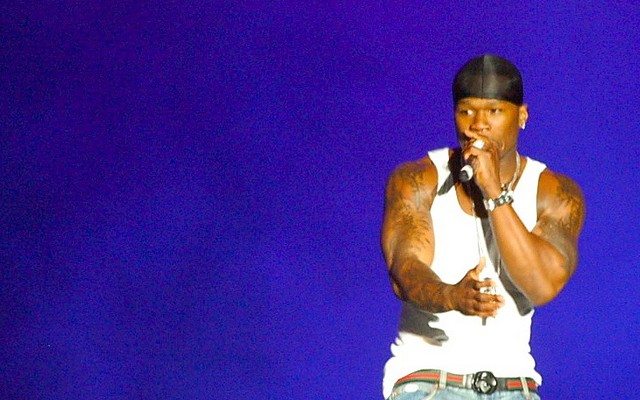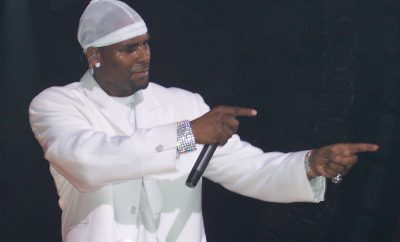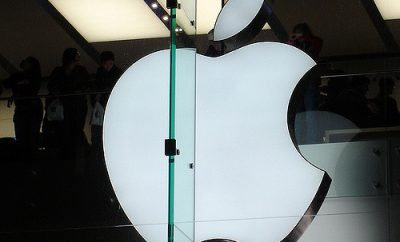
News
Can Rap Lyrics Represent an Admission of Guilt?
So let me drop a lyric: “I meet aggression with aggression, I learned that on the streets” by 50 Cent. What does this lyric conjure?
Let us all admit that when we hear rap lyrics like this one, not all of us automatically get a warm fuzzy feeling in our hearts. In fact, many rappers are criticized for producing overly aggressive lyrics about controversial topics; the objectification of women; and violent threats towards individuals who have wronged them. Most of us consider the lyrics of rappers to be more of a style choice — the way in which they want to market themselves to their prospective audience rather than an autobiographical representation. But now a question: Have you ever considered the rap lyrics coming through your headphones to be a confession to a crime? The United States Court System has.
In the past several years, rap lyrics have been used against the accused as evidence to support their criminal actions. In 2013, it was found by the American Civil Liberties Union of New Jersey that in 18 cases, rap lyrics were considered as possible evidence and were used in trial 80 percent of the time. When these rap lyrics are shared in court, it can be detrimental to the accused.
A study conducted in the late 1990s explored if rap lyrics used during a trial swayed jurors’ opinions. Participants were given basic biographical information about a hypothetical 18-year-old black male, and some were shown a set of his explicit rap lyrics. Those who read the lyrics were significantly more likely to believe that the hypothetical accused would have committed a violent crime.
This bias regarding artists who express themselves through rap lyrics has repeatedly displayed itself in court, stirring debate as to whether these lyrics should be used as a form of evidence. It is doubtful that when Vonte Skinner first wrote the lyrics, “Look in my palms. You can see what I’m gunnin with,” he would foresee their use against him in court. However, Skinner was placed on trial in 2008 for possible involvement in the shooting of Lamont Peterson in 2005. Skinner, also known by his rap name Threat, was found guilty after the prosecution read 13 pages of his violent lyrics — similar to those mentioned above. It is speculated that these lyrics have contributed to the charge and conviction against Vonte for attempted murder. This conviction was later overturned on appeal, and will be officially decided by the New Jersey Supreme Court in March.
This case presents the idea that rap lyrics can be used to misrepresent the accused as a horrible or violent person. In reality, Skinner’s lyrics were written long before the shooting and subsequent paralysis of Lamont. In fact, the lyrics did not mention the victim or even specific details regarding the crime. Thus, lyrics can be used when minimal evidence is available, in order to turn the tides of a case. This exact situation occurred again when Los Angeles rapper Lil Boosie was accused of paying a hit man, Mike Loudon to shoot and kill Terry Boyd in 2009. With no physical evidence linking Boosie to the crime, prosecutors built their case around his rap lyrics. Despite the objections of the defense attorney, prosecutors went ahead and presented lyrics from songs such as “Bodybag,” claiming it was a representation of evidence to tie Boosie to the murder. Luckily, the jurors were not convinced by the lyrics. While Lil Boosie escaped conviction and Vonte Skinner will have a second chance through the Supreme Court, the issue becomes whether courts should be allowed to utilize rap lyrics as evidence.
Many believe that this “alternative form of evidence” should not be considered evidence at all. As a genre, rap is a form of entertainment, one that uses exaggerative and figurative language. Often rappers use lyrics as a form of artistic expression and this is how we should view them. Instead of taking rap for what it is — an art form — prosecutors present the lyrics of rappers as an autobiographical expression or admission to illegal behavior. Defense attorneys often object to the use of lyrics, as courts typically do not allow the presentation of evidence meant to damage a defendant when it is not directly related to a crime. However, the presiding judge over a case has the ultimate decision and rap seems to have become an exception, as many judges have allowed the use of rap in court.
Then why do rap lyrics keep presenting themselves in court? The rap industry has become synonymous with criminality, as more and more artists are going on trial and lyrics become more explicit. To this extent, it is less than surprising that musicians find their own lyrics used against them. However, the courts should find stronger evidence to tie an accused to the crime rather than obscure lyrics taken out of context. Why would anyone willingly incriminate themselves? Clearly, just because a lyric is violent, does not mean it is a confession to illegal activity. The hearing of Skinner’s case in the Supreme Court can turn the tides for rappers, and possibly end the use of lyrics as evidence in trial.
[New York Times] [North Carolina Criminal Law] [The Roott]
—
Taylor Garre (@TaylorLynn013)
Featured image courtesy of [Susanne Davidson via Flickr]








Comments